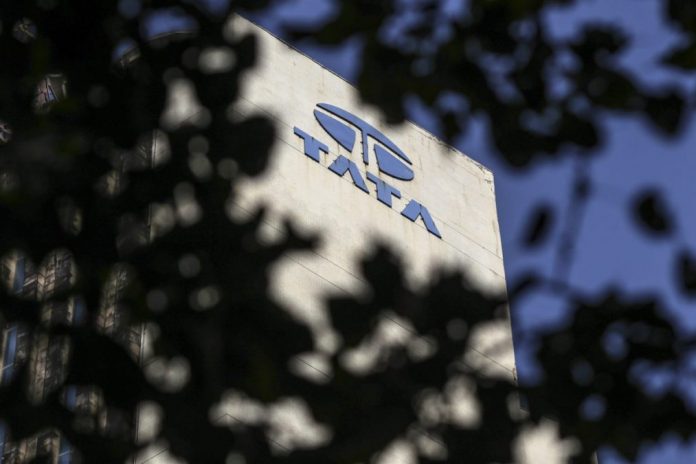This article is written by Tejas Geetey, pursuing a Diploma in International Business Law from LawSikho.
Table of Contents
Introduction
An effective corporate governance structure is needed to protect the interests of all the stakeholders. For the proper functioning of a corporation, the majority shareholders should ensure that their use of power does not lead to affecting the rights of minority shareholders. Many times, promoters and majority shareholders of a company use their dominant powers to take major decisions and control of the business operations, thereby questioning the independence of the corporation. This article deals with a similar issue that occurred in the Tata-Mistry dispute and provides a brief analysis of the fundamental governance issues faced by the company.
Overview of the Tata-Mistry dispute
Tata Sons are the principal holding company of the Tata Group. Since 2006, Cyrus Mistry was one of the directors of Tata Sons and thereafter appointed as the chairman of the Board. But certain disagreements happened between Cyrus Mistry and the Tata Sons Board relating to the functioning of the company and decisions taken by Cyrus Mistry. This led to the removal of Cyrus Mistry as the Chairman of Tata Sons in 2016.
Cyrus Mistry challenged the removal from the position in National Company Law Tribunal (NCLT). The same was rejected by NCLT and held that that parent company has the power to remove him as the chairman. The removal was further challenged in National Company Law Appellate Tribunal (NCLAT) which allowed and held that the removal is illegal and that the company’s affairs were managed in a way that was detrimental and oppressive to its minority shareholders, particularly Cyrus Mistry and his family enterprises which include Shapoorji Pallonji Group.
Tata Sons opposed the order as it weakens the board’s corporate democracy and rights and therefore pursued the matter in the Supreme Court. Thereafter, the Supreme Court stayed the order of NCLAT which included appointing Cyrus Mistry again as the Chairman of the Company. In the midst of this dispute, a parallel dispute arises between the parties as to the family enterprise of Cyrus Mistry, Shapoorji Pallonji (SP) Group, which holds approximately 18.47% equity capital in Tata Sons and wanted to pledge its shares in the company. Pledging of shares was required to reduce the debt obligation for which an investment deal of around $ 400 million was also in the initial stage with Brookfield Asset Management Inc. Thereafter, appeals were filed by both parties in relation to the dispute.
Supreme Court’s decision in relation to oppression and mismanagement
Chapter XVI of the Companies Act, 2013 deals with the prevention of oppression and management in a company. Removal of a person can only be considered when the same is the result of the oppression and mismanagement in the company. The Supreme Court in pursuance of the proceeding set aside the order of NCLAT and allowed all the petitions of Tata Group.
The court held that no oppression or mismanagement was done and the Board was justified in removing Cyrus Mistry as the Chairman in accordance with the articles of association of the company. As per Section 241 of the Companies Act, 2013, a company’s activities can be considered to that of oppression or mismanagement if the affairs of the company are conducted in a manner prejudicial to the public interest or any material change, or any alteration in the Board of Directors (BOD), or in any other manner by which the affairs of the company will be conducted in a manner prejudicial to its interests or its members.
The court held that mere removal from the post cannot be considered as a ground that it was just and equitable for winding up the company under Section 242 of the Companies Act, 2013. The court also reversed the decision of NCLAT in relation to article 75 of Articles of Association (AoA). The Court held that the article can be used to misuse and violate section 241 of the Companies Act, 2013 cannot be considered as a ground to remove the said article as no misuse or violation of the given article has been reported.
Governance issues revolving around the dispute
Though the Supreme Court decision may be justified considering the legal obligations, certain disputed points arise that question the corporate governance policies adopted by the company:
1. Dominant powers are given to the promoters
The majority shareholding of Tata Sons is with Tata Trusts which is approximately 66% of the total shares. Tata trusts being the majority holder has significant power in appointing and removal a chairman. According to the Articles of association (AoA) of the company, if Tata Sons hold at least 40% of the shares in the company, then it shall have the power to nominate one-third of the company’s directors. The article of association also provides for the appointment as well as the quorum of the general meeting. Specifically, in relation to the quorum of a general meeting provided under Article 86 of Articles of Association, it is given that quorum should include a minimum of 5 members out of which at least one shall be jointly nominated by Sir Dorabji Tata Trust & Sir Ratan Tata Trust. The above articles may be in consonance with Section 103 of the Companies Act, 2013 which provides the quorum for the meeting of the board, but the articles indicate that promoters have significant powers in influencing the operations of the company.
2. Affirmative voting rights
Another issue in relation to the dispute is the powers given to nominee directors under articles of association. Pursuant to Article 121 of Articles of Association (AoA), in any matter related to business operations, the consent of nominee directors has to be taken. In relation to this, the Supreme Court held that having affirmative voting rights is a common practice followed in a company and is done in its interests and therefore not violative but this gives significant power to promoters to manage and control the activities of the company.
3. Independence in decision making
As the promoters have a major stake in decision-making, many times rights of minority shareholders or independent directors get affected. In the given dispute, when Nusli Wadia supported Cyrus Mistry in the company’s action against his removal, he was removed from the position of independent director in 2016 alleging that he was acting in concert with Cyrus Mistry, that is he had a common objective to speak against Board’s actions. It is arbitrary, to say the least, that the board did not consider any support which was shown by Nusli Wadia against the removal of Cyrus Mistry. Promoters had moved the resolution citing that Nusli Wadia was allegedly influencing other members to vote for Cyrus Mistry which thereby led to his removal. The removal of Independent Directors by the Board questions the independence of directors appointed. The promoters have the power to influence the decision as they have major say in the matter.
Conclusion
The Tata-Mistry dispute is one of the largest corporate disputes in India which touches on various fundamental questions of corporate governance. Being a promoter-controlled company, Tata Sons’ major decisions are taken through the consent of promoters. The same powers are provided in the Articles of Association (AoA) of the company. Tata-Mistry dispute reiterates the importance of Articles of Association approved by the Board. If the shareholders of the company once accept the Articles of Association (AoA), then that shall be followed even if it favours more to the promoters.
The problem with the ownership structure of these companies is not only the power imbalance between the promoters and shareholders but also that it restricts the rights of minority shareholders if it is not in the interest of the promoters. This leads to a conflict of interest between the promoters and other members of the company thereby affecting their mutual relationship. Business corporations often consider the interests of the promoters before the interest of the company which fails to have long-term sustainability in the relevant business market.
It is important to understand for the founders and major stakeholders of a corporation that following the legal compliances does not result in an effective corporate structure. The corporation has to effectively mold its governance policies that protect the rights of shareholders, not draft one-sided policies which favour only promoters, and oversee the policies that benefit every stakeholder involved in the business process.
References
- Tata Sons: About the Company: https://www.tata.com/business/tata-sons
- Tata Vs Mistry Judgment Day: All You Need To Know (Bloomberg Quint, 26th Mar. 2021), https://www.bloombergquint.com/business/tata-vs-mistry-supreme-court-judgment-day-all-you-need-know.
- SEBI’s backtrack on Independent directors, (The Indian Express, 14th July 2021)https://indianexpress.com/article/opinion/columns/tata-mistry-corporate-dispute-nusli-wadia-sebi-appointment-removal-of-independent-directors-7403380/
Students of Lawsikho courses regularly produce writing assignments and work on practical exercises as a part of their coursework and develop themselves in real-life practical skills.
LawSikho has created a telegram group for exchanging legal knowledge, referrals, and various opportunities. You can click on this link and join:
 Serato DJ Crack 2025Serato DJ PRO Crack
Serato DJ Crack 2025Serato DJ PRO Crack










 Allow notifications
Allow notifications


